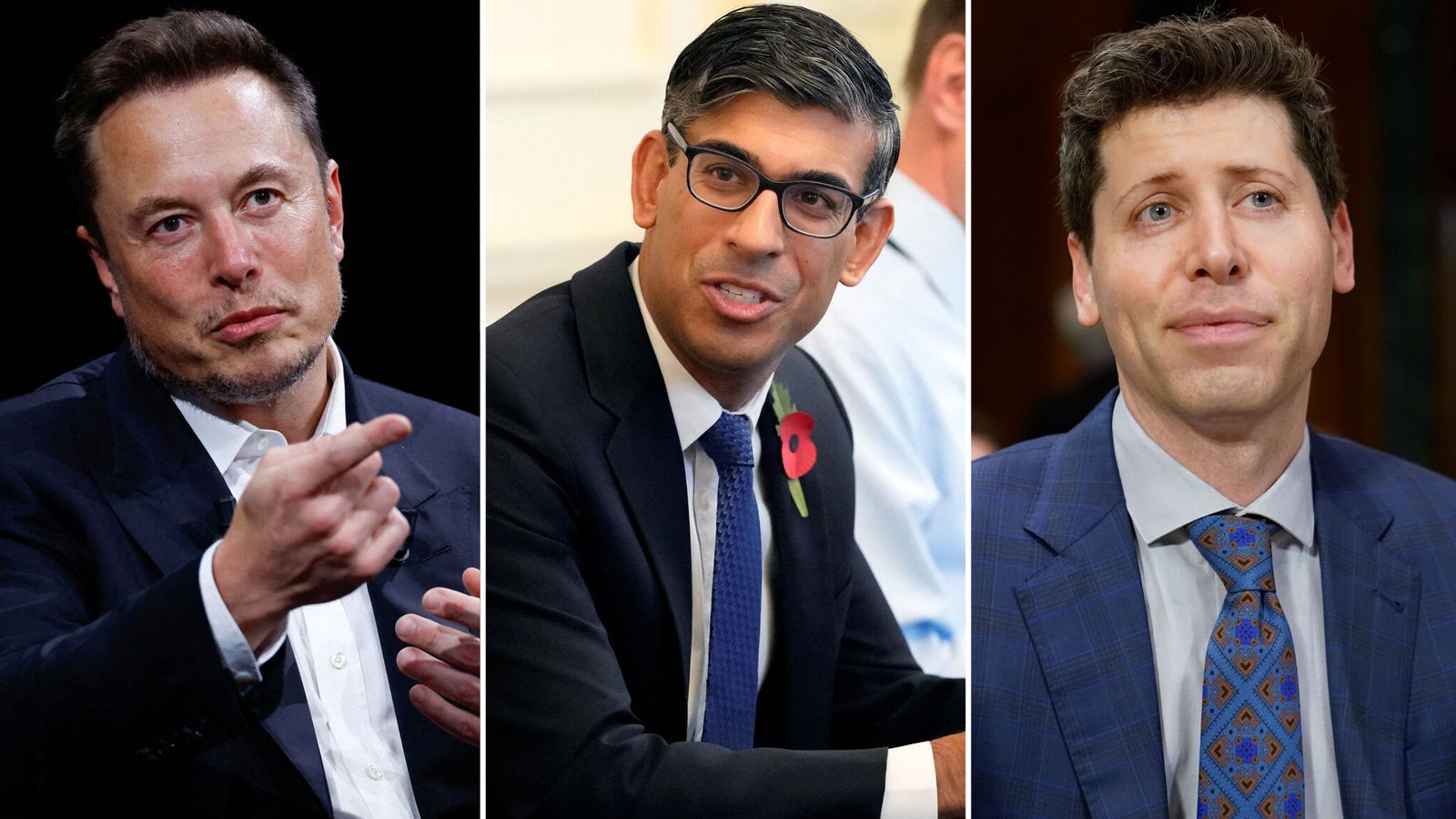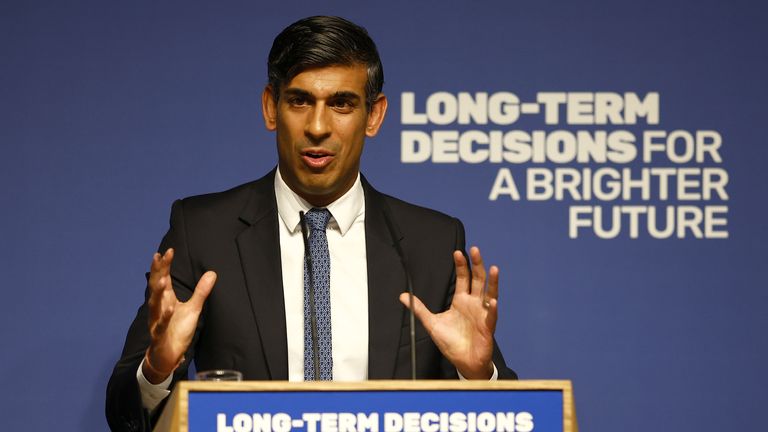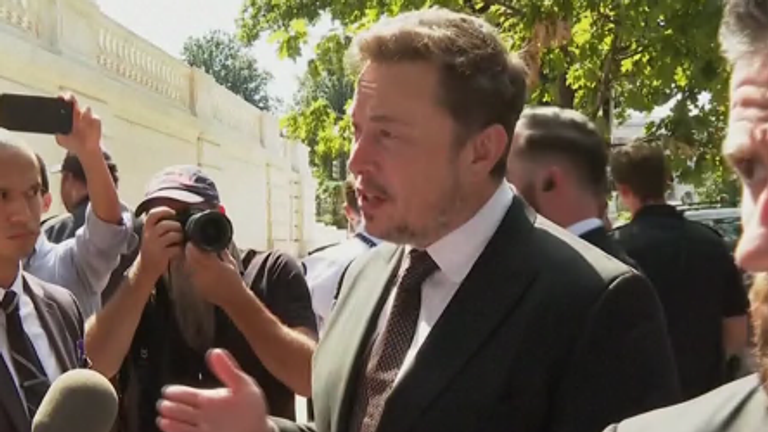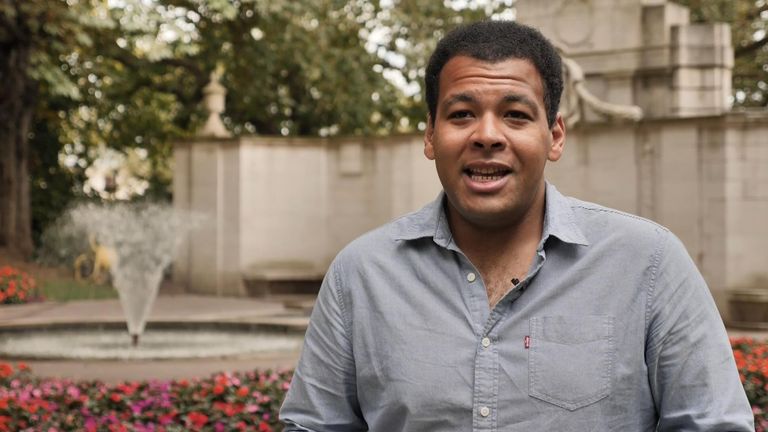Elon Musk and ChatGPT boss jet in for UK’s AI summit – as Sunak warned of ‘here and now’ threats


Rishi Sunak has been warned not to ignore the “here and now” threats to people’s jobs posed by artificial intelligence, as Elon Musk and the creator of ChatGPT jet in for a landmark UK summit.
Bletchley Park is set to welcome more than 100 figures from politics and business from today, including the likes of OpenAI’s Sam Altman, Google DeepMind’s Demis Hassabis, and billionaire Musk.
US vice president Kamala Harris, European Commission president Ursula von der Leyen, and controversially, a Chinese tech minister are also attending; though Canada’s Justin Trudeau, France’s Emmanuel Macron, and Germany’s Olaf Scholz are not.
The two-day event, held at the home of Britain’s Second World War codebreakers, is the first global summit on AI safety and the prime minister hopes it will help shape its development.
Reports suggest he will use discussions at the summit as the basis for a global advisory board for AI regulation, modelled on the Intergovernmental Panel on Climate Change (IPCC).
But following a speech last week, in which he spoke of dystopian threats like terrorists developing bioweapons and humanity losing control of AI, Mr Sunak has been warned not to ignore more present dangers.
Mary Towers, employment rights officer at the TUC, told Sky News: “We are not saying the government should not address hypothetical future risks – but it should not be done at the expense of dealing with existing harms.”
Read more:
What you need to know about landmark safety summit
Elon Musk brings unpredictable star power to Sunak’s AI gala
Please use Chrome browser for a more accessible video player
1:26
Sunak vows to tackle fears around AI
PM ‘squeezing out’ marginalised voices
Advertisement
The TUC union was one of dozens of experts and organisations to sign a letter to Mr Sunak this week, accusing him of having “marginalised” those most at risk of being impacted by AI.
It said small businesses and creatives, who have been among the most vocal in their concerns about AI, felt “squeezed out” and “smothered” by the power and influence of big tech firms.
Ms Towers accused the prime minister of assembling a “narrow interest group” for the summit, which will also host executives from tech giants like Meta and Tencent.
In an open letter coordinated by the TUC, more than 100 organisations branded the AI summit “a missed opportunity”, saying: “For many millions of people in the UK and across the world, the risks and harms of AI are not distant – they are felt in the here and now.”
The guest list certainly reflects Mr Sunak’s enthusiasm for AI, and he will join Mr Musk for a live discussion on X (formerly Twitter) after the event.
Please use Chrome browser for a more accessible video player

0:59
Musk warns of AI ‘civilisational risk’
Regulation ‘desperately needed’
Ahead of the summit, the prime minister announced a £100m investment in AI tools to research new cancer and dementia treatments – answering calls from surgeons who believe the NHS must embrace the technology.
The government also committed £2m to helping schools adopt AI, such as to help teachers plan lessons.
And earlier this week, The Telegraph reported the government is testing a ChatGPT-style chatbot that can answer people’s questions about benefits, housing, and taxes.
But one in three Britons fear the tech could take their jobs, according to data released this week.

Science and technology editor
Some people thought the PM’s AI summit would be a flop.
The venue, Bletchley Park has pedigree. It was home to the first electronic computer and the war-time code-breakers that pioneered AI.
But recent political and economic chaos combined with the regulatory irrelevance of a UK outside of the EU, so the thinking went, would make it unlikely Mr Sunak could really attract serious players in the development and regulation of AI.
Sure, a few big names are absent. But the US vice-president will be there, so will Meta’s AI chief. The government also resisted criticism to ensure the Chinese state is represented, along with the EU.
This now looks increasingly like a significant meeting on serious global issue.
The anticipated arrival of the world’s richest man and controversial tech titan Elon Musk adds a hefty dose of Silicon Valley stardust.
But none of this guarantees success. In fact, no one agrees on what success might look like.
Most global conferences are defined by trying to find consensus among disparate political or commercial views around a specific goal – take the decades long effort tackle global warming for example.
In the case of AI, all parties want to prevent a machine intelligence more capable than humans running out of control. It’s just no one really agrees on what that AI looks like or how to go about preventing it.
Expect to hear baffling statements around “responsible scaling”, “red-teaming”, “guardrails” and the need to control AI without hobbling it’s potential to benefit humanity.
Real progress would be some kind of plan to control, contain, or perhaps even prevent the development of increasingly powerful and unpredictable AI models. But with just two days to talk it over, few expect the delegates to achieve that – even with the ghosts of Bletchley Park peering over their shoulders.
Administrative, customer service, and secretarial workers are most worried, the Office for National Statistics said.
Ms Towers said legislation was “desperately needed” to address redundancy concerns, and force employers to be transparent with workers about how they plan to use AI.
Bodies including the Publisher’s Association and Society of Authors have also called on Mr Sunak to take a tougher stance against AIs being trained on copyrighted material, echoing concerns of other creative industries.
But Mr Sunak has expressed caution about regulation, saying it would stifle innovation.
Please use Chrome browser for a more accessible video player

1:06
Music industry calls for AI protection
Rather than suggest bespoke new laws, the government has said it will lean on existing regulators to enforce principles around safety and transparency.
Other countries are going further, with US President Joe Biden announcing guardrails to address issues from job security and discrimination to deep fakes and misinformation.
The EU and China have also unveiled their own proposed AI regulation.
Kriti Sharma, founder of AI For Good UK, told Sky News businesses needed to know they can trust AI, and called for regulation that ensures new models are trained using trusted data sources.
Research by consultancy firm Infinum reveals more than three-quarters of British firms plan to invest in AI over the next year, but 73% admit to being ill-prepared to actually integrate it into their operations.
Ms Sharma said the government must ensure nobody is left behind.
“We need to strongly champion the need to create a basic AI education for everyone,” she said.
“New opportunities will come up, and I’d love the UK to be at the forefront of creating an AI-ready workforce.”
The summit is set to close on Thursday with Mr Sunak giving a speech outlining what attendees have agreed on.
His discussion with Mr Musk on X will take place afterwards.